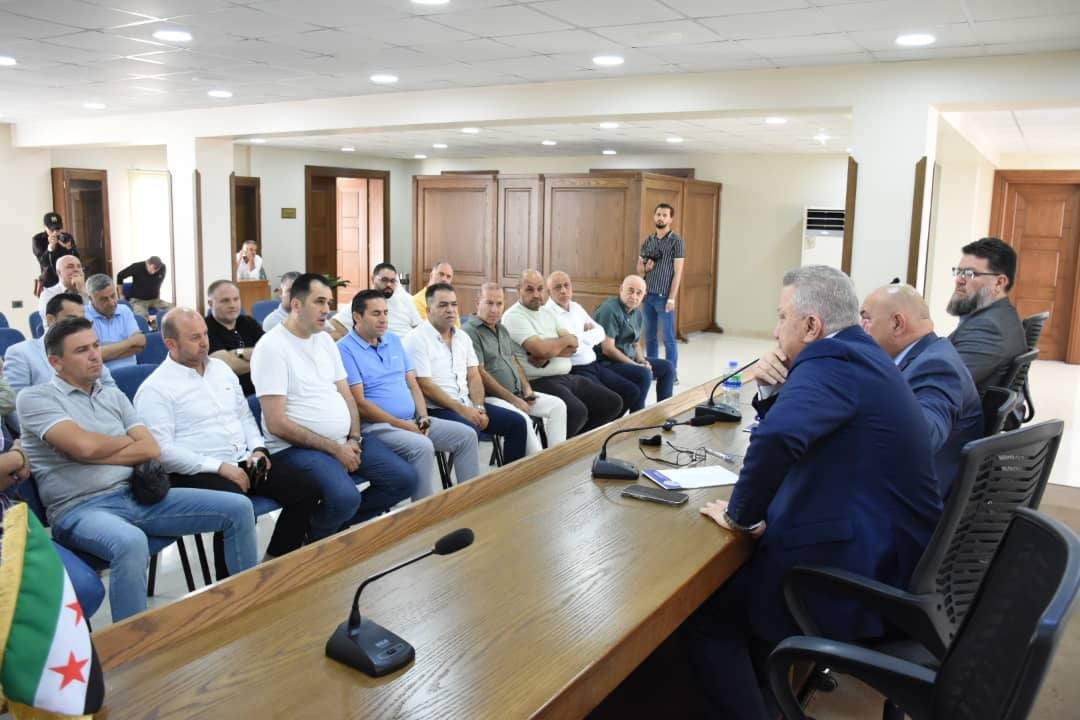
Aleppo industrialists demand immediate decisions and measures to protect and support national industry.
An expanded meeting of industrialists was held today at the Aleppo Chamber of Industry, chaired by Chamber President Imad Taha al-Qassem, with the attendance of board members and representatives from various industrial sectors.
Attendees unanimously agreed that national industry today is suffering from serious problems that threaten to shut down industrial facilities and harm various industries, particularly textiles. They noted that the most prominent of these problems is the flooding of markets with large quantities of very poor-quality foreign goods and stockpiles, which has led to the closure of a large number of factories and threatens the closure of others. They also noted the lack of control over border crossings, the continued smuggling of goods, the high cost of electricity and fuel, and the existence of customs distortions. All of these factors have contributed to the greatest damage to national industry, which now requires urgent intervention and bold decisions to provide support to national industry to enable it to continue. The industrialists demanded the reinstatement of import licenses, a reduction in electricity prices to no more than 8 US cents per kilowatt, the abolition of any additional fees on electricity bills, a reduction in fuel prices to match the global price or that of neighboring countries, border controls to ensure the quality of imports, the activation of the dry port in Aleppo to clear goods, and a reduction in customs duties on all raw materials used in industry.
The attendees emphasized that the current industrial situation no longer tolerates delay and procrastination. Rather, it requires addressing all problems and issuing immediate decisions that will revitalize the industry, meet the needs of industrialists, and support production.
The head of the Chamber of Industry explained that the Chamber is the home and voice of industrialists and is working around the clock to resolve existing problems. A large number of studies and proposals have been submitted. He noted that urgent efforts will be made to communicate these demands to the relevant ministries and communicate with decision-makers to expedite appropriate decisions. He also noted that an urgent meeting will be held with the relevant ministers to issue immediate decisions that will positively impact industry and production.